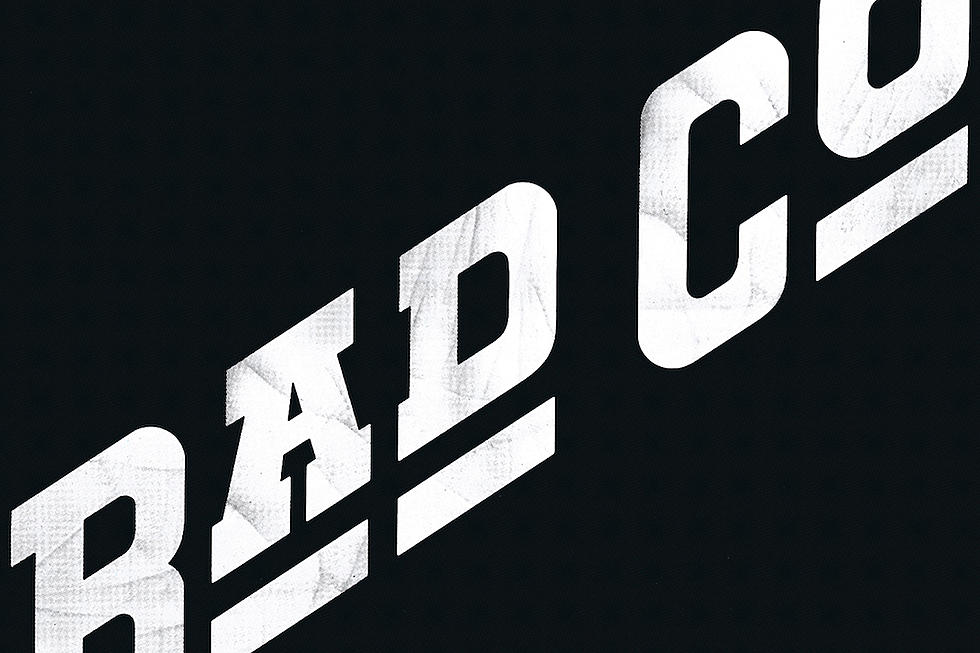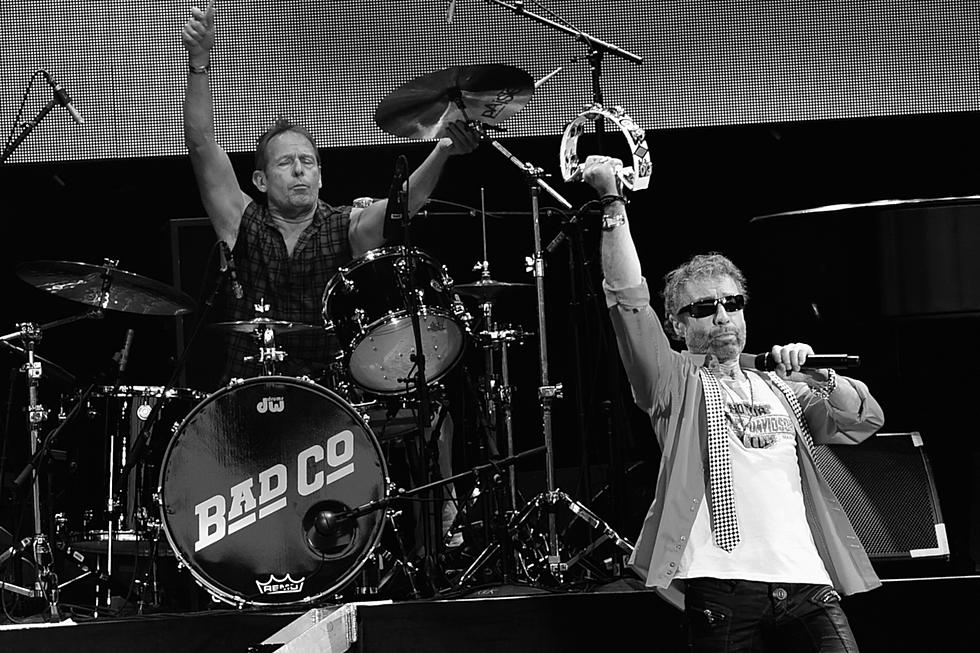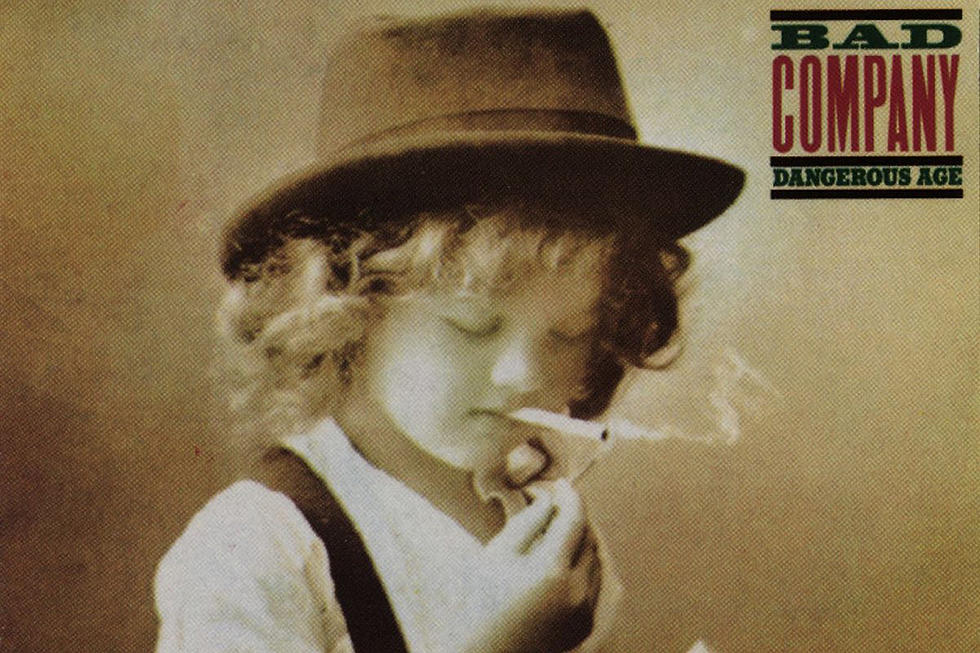
50 Years Ago: Bad Company Changes Perceptions About Supergroups
Rock supergroups often turn out to be depressingly less than the sum of their parts. But when singer Paul Rodgers and drummer Simon Kirke left Free to team up with ex-Mott the Hoople guitarist Mick Ralphs and former King Crimson bassist Boz Burrell, the results proved too potent to ignore.
The new band, christened Bad Company, started coming together in 1973, but things could have happened even sooner.
"After the initial Free breakup [in 1971], Paul had a group called Peace," Ralphs told Circus. "Mott the Hoople did a tour with them. Mott and Peace got together and jammed in the dressing rooms between gigs and found they had a lot in common," he explained. "Unfortunately, Mott was just beginning to get established and Paul had the Peace thing, so we had to wait."
READ MORE: Top 10 Bad Company Songs
Ralphs told Rolling Stone that he and Rodgers were both at a crossroads by 1973. The time was right to make a change: "I wasn't feeling happy with the way the material was heading because we were about to embark on a new album," he said of the end of his tenure with Mott. "And I got to talking to Paul and he felt a bit like me; we were both in situations where we weren't entirely at liberty to do what we wanted to do."
Rodgers concurred. "Yeah, there were personality clashes in Free, really," he said. "I think it's as simple as that; I think we felt we weren't leaving each other enough room to develop in our own way and we were restricting each other. So we said, let's go different ways."
With Ralphs and Rodgers connected, a band started to form – one whose lineup was further cemented when Rodgers' old Free cohort Kirke resurfaced. "When Free finally split I just wanted to lay back for a bit and clear my head," Kirke told Rolling Stone. "It wasn't really a case of Paul approaching me, we just sort of got back together."
Burrell added the final missing link, putting his own busy career on hold to be part of what seemed to be a promising outfit. "I was doing session work mainly when they called me," he added. "People like Alexis Korner, Eddie Harris, Esther Phillips. I'd really planned to do sessions for a year and then hope I'd find a really good unit to get into."
In a 1974 talk with Circus, Kirke said: "Everything seems to have been a natural progression in the band. There was no hustling or planning, we were just playin' it by ear. Obviously, we wanted to form a good solid band but we weren't going to make any compromises. The people in the band had to be the right people, the right sort of personal chemistry."
Listen to Bad Company Perform 'Ready for Love'
Getting Back to the Basics
Their no-compromise attitude was also reflected in the new band's response to expectations engendered by its members' previous efforts.
"When we first formed, people were expecting to hear another Free or another Mott the Hoople. But the material is original enough to completely wipe out all the past," Rodgers complained. "When we first got together we were thinking of going under the name Free. But we felt we needed a totally different identity because Free had gone through a lot of different traumas and things. To me, I was getting the feeling that a lot of people didn't really think it was very together ... because it wasn't. We toyed with the idea but we decided against it and decided to have a totally different name."
That menacingly direct moniker proved fitting for the no-frills rock the group started brewing up. "Songs should be simple without being corny," Ralphs argued. "I hate pretentious double meanings and analogies. What Bad Company is about are the ballsy basics."
Added Rodgers, "I don't like lyrics to be overbearing. I like them to say something. But I'm not trying to change the world overnight. Something simple and understandable that people can relate their own everyday experiences to. Mick also writes the same way...I always try to write lyrics I can actually speak. Like if I'm talking to a chick, then I'd want to say certain things without any embarrassment. It has to be simple."
The band found a perfect home at Swan Song, the new label formed by Led Zeppelin with the aid of their legendarily pugnacious manager, Peter Grant.
"It was one of those organic situations that comes together very naturally, and it seems so easy at the time," Rodgers recalled during a discussion with UCR. "I got together with Mick, we started writing songs, and I decided we needed really good management. Led Zeppelin was the biggest band on the scene at the time, so I decided I'd call their manager – in my innocence, I thought you could just call him up. But it worked out, because they were forming Swan Song, and he said, 'Yeah, I'm interested in you.' I said, 'Well, I come with a band, Peter, and we're called Bad Company.'"
In spite of one or two snags, things continued coming together cleanly. "They weren't sure about the name; they thought it sounded a bit radical," Rodgers said with a chuckle. "But he came down and liked what he heard, and we recorded the first album at Headley Grange. Again, it was very organic; we'd be sleeping in the same rooms where we were recording. We'd have the guitar in the same room where we had the fire going, or be out on a veranda or something. We were all over the house with our equipment. We'd get up in the morning, cook breakfast, light the fires, and share it all together. It was a great way of making an album. Very hippie."
Listen to Bad Company Perform 'Bad Company'
Led Zeppelin's Delay Opens a Crucial Door
The Led Zeppelin connection proved useful when it came time to roll tape, too. "They'd been delayed, so Peter told us we could record a couple of tracks quickly until they arrived, and we just zoomed in and put everything we had down," Rodgers laughed. "Took advantage of the situation. We didn't really know what shape the album would take. We just had a bunch of songs we'd been rehearsing, from "Rock Steady" to "Seagull" to "Can't Get Enough." We just allowed it to come together for us, and I enjoyed doing that."
That "very organic" approach spilled over into different areas of the recording, including Rodgers' decision to tape his vocals for the title track in an open field. "Well, the thing for me is that recording, really, is capturing an atmosphere," he explained.
"It isn't too much about the technicalities, although they definitely play a part. It's about capturing a mood, and I thought, well, how much more powerful a mood can you create than if you put the microphone out in the middle of a field with a full moon and then sang to the track with that sort of atmosphere? The darkness and all that. It seemed to work. We did some of that – recording around campfires and sings. We had a version of 'Do Right By Your Woman' that we ended up not using because of that – the fire was crackling all over it. It was a little too atmospheric."
READ MORE: How Bad Company Came Roaring Back With ‘Straight Shooter’
That fast-and-dirty approach paid off when Bad Company's self-titled debut arrived in stores in June 1974. One of the best-selling records of the decade, Bad Company reached the top of the Billboard charts and nearly did the same in the U.K., where it peaked at No. 3. The group's sound proved equally at home on the radio, where the singles "Can't Get Enough" and "Movin' On" both broke the Top 20 of the pop charts, while "Rock Steady," "Ready for Love," and the record's title track gained a lasting foothold at rock stations.
The immediate success of Bad Company – and Bad Company – put the group on a hard-charging path that would eventually lead to burnout all over again, but at least initially, the band offered a refreshingly simple alternative to the record biz shenanigans they'd previously experienced.
"Our whole aim is just playing to people," Kirke told Circus in 1975. "We don't categorize our music or cater to fashions or tastes. We try to be as real as possible, because when you're real you're putting out truth."
And as Bad Company soared up the charts on its way to multi-platinum status, the truth was that the band's members had all lucked into the perfect situation at just the right time, and were producing a sound that rock fans had been waiting for. "We're all at the same stage," Burrell Circus in 1974. "We're all enthusiastic and not jaded yet; this is really like our very first band."
Legends Who Never Had a No. 1 Single
Gallery Credit: Nick DeRiso
Rock’s Forgotten Supergroups
More From Ultimate Classic Rock









